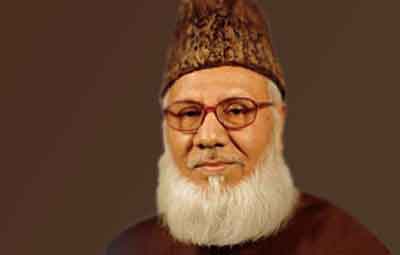Bangladesh Jamaat Chief Gets Death Sentence For 1971 Genocide
amaat-e-Islami Ameer Motiur Rahman Nizami

NEW DELHI: Bangladesh Jamaat-e-Islami chief Motiur Rahman Nizami has been given the death penalty by a special tribunal in Dhaka. The four charges of war crimes that have invited the death order by the courts includes the killings of intellectuals at the end of the 1971 Bangladesh Liberation War.
The International Crimes Tribunal has also found Nizami guilty of eight of the 16 charges levelled against him stating that while claiming to be an Islamic scholar, he had misinterpreted the Quran to encourage his followers to indulge in genocide. The trial has been on for 40 years, reaching a conclusion now.
Nizami’s lawyers will challenge the verdict in the country’s Supreme Court insisting that it was ‘not based on evidence.” Whatever is being told against me is false," defence counsel Tajul Islam said quoting Nizami after the court verdict.
The Bangladesh Daily Star reported that processions were held in Dhaka welcoming the verdict. Security has, however, become an issue with extra police protection for the courts. Six top Jamaat leaders have now been punished for the 1971 crime, while two are under trial in war crimes tribunals. The Awami League led government has made it a mission to ring the perpetrators of 1971 war crimes to book.
The Daily Star giving a background of the case reported, “The ICT-1 framed 16 charges against Nizami on May 28, 2012. According to the charges, Nizami had conspired with the Pakistani army, planned and incited crimes; was complicit in murders, rapes, looting and destruction of property; and was responsible for commissioning of internationally recognised wartime crimes in 1971.
But, it took around one and a half years for the completion of the trial, thanks to the lack of preparation of the prosecution and a range of dilatory tactics of the defence.
The tribunal first kept the case awaiting verdict on November 13 last year. But the proceeding faced further delay when tribunal's chairman Justice ATM Fazle Kabir went on retirement without delivering the judgment. His successor reheard the closing arguments and kept the verdict waiting again on March 24.
The tribunal could not deliver verdict on June 24 due to Nizami's sudden "illness" forcing the court to keep it waiting again.
The Jamaat chief played a key role in forming the four-party alliance ahead of the 2001 election and led his party to taste state power along with their key ally the BNP.
He and Jamaat's second man, Ali Ahsan Mohammad Mojaheed, who was convicted in war crimes last year, became members of Khaleda Zia's cabinet, amid protests from the country's pro-liberation minds.”



